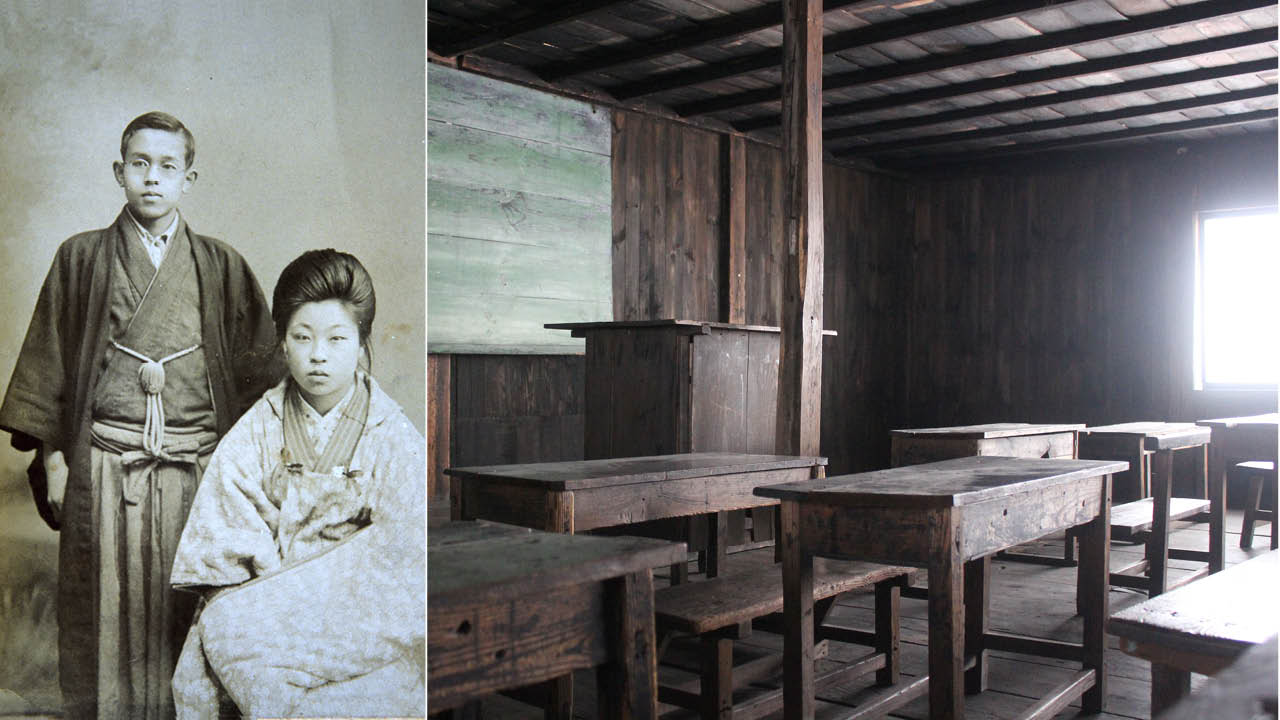The society of Takuboku Ishikawa's era was in dramatic political flux, and its complex issues became his personal obsessions. After his death, Takuboku's preoccupations came to be seen as a symbol of the social and emotional upheavals of his times.
The key word in the last two decades of the Meiji Era (1868-1912) was "polemics." Intellectuals and socially conscious people were actively involved in a nationwide discourse, played out in all aspects of the culture — literature, theater, graphic arts, journalism — as to what the nature of future Japanese society should be. In essence it is the same current that continues to rage today: Should society be open to ideas on the basis of their true merit, creating a fluid situation that leads to the betterment of all classes? Or should the body polity be unified in thought and action behind one ethnic, religious or ideological idea, an idea that presumably makes the nation "stronger" and more successful at engaging in conflicts with other countries?
It is clear that Takuboku identified in his writing with those people who fervently wanted to liberalize Japanese society, and this at a time when the nation was on a mission to create an empire in its expanding hemisphere of influence.



















With your current subscription plan you can comment on stories. However, before writing your first comment, please create a display name in the Profile section of your subscriber account page.